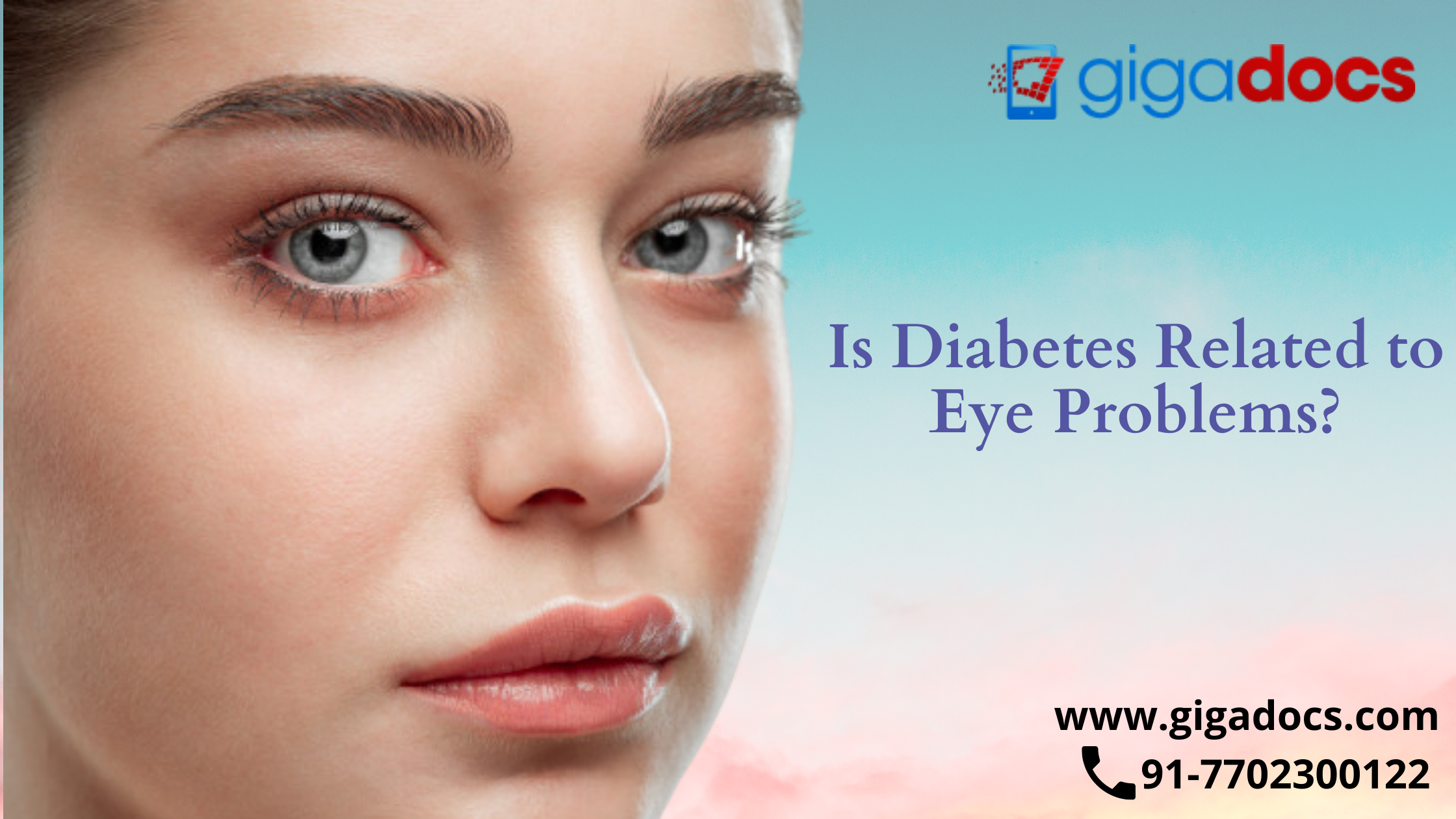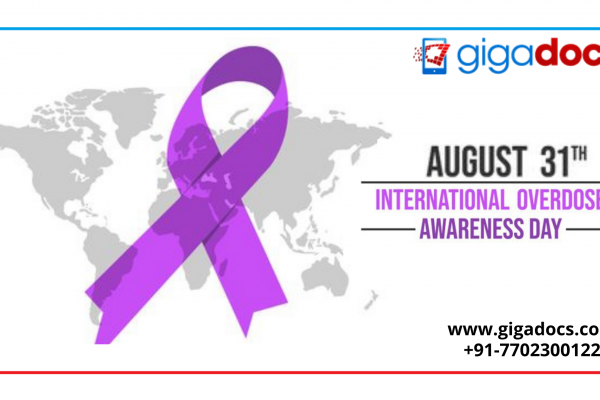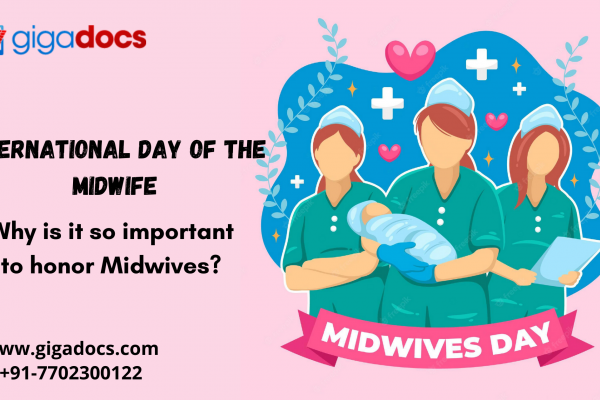Insulin (made by the pancreas) is considered to be one of the main anabolic hormones of our body which helps in the absorption of glucose from food by the cells for energy. This glucose gets accumulated in the blood, when enough insulin is not made by our pancreas. This causes blood sugar levels to rise, a condition known as Diabetes. Diabetes affects how our body uses blood sugar levels (glucose).
Our eyes are one of the first places that show signs of diabetes complications. Over time, glucose accumulated in the tiny blood vessels around the eyes can damage them, causing cataracts, glaucoma, or diabetic retinopathy which can worsen if blood sugar levels rise.
Diabetes and Eye Diseases
In the short-term, high glucose levels may not result in vision loss. However, few diabetics may have a blurry vision that lasts for a few days or weeks. High glucose levels can even cause swelling in the eye tissues that go away when the glucose level is back to normal.
Besides, during the prediabetes phase, high blood glucose levels may damage the back of the eyes by swelling caused by leaking fluids that subsequently bleed into the middle part of the eye that leads to scarring and high pressure inside the eyes.
Here are the common eye diseases caused by Diabetes–
Cataract
A Cataract is defined as an eye condition that clouds the eye’s lenses. A cataract is more commonly seen among the elderly, and its risk significantly increases with elderly diabetics. Cataract can last for several months or years and is characterized by clouded, blurred vision, halo formations around a light, and light sensitivity.
Diabetic Macular Edema
Macula, an oval-shaped pigmented area in the center of the retina is critical for driving, seeing faces, and reading. Diabetes can swell the macula, a condition called diabetic macular edema which can destroy sharp vision, causing partial vision loss or complete blindness.
Glaucoma
Glaucoma is defined as a medical condition that damages one’s optic nerves. Optic nerves as the name suggests are a group of nerves that connect the eyes to the brain. High sugar levels double the risk of contracting Glaucoma, which if not diagnosed and treated early can result in blindness.
Diabetic Retinopathy
Non-proliferative diabetic retinopathy is caused by bulging of the blood vessels that harm the retina. In the advanced diabetic retinopathy stage, the existing blood vessels may bulge and close making way for new blood vessels to multiply on the surface of the retina causing vision hindrances. One in three, diabetics who are older than 40 years of age show signs of diabetic retinopathy. Early diagnosis of diabetic retinopathy can reduce blindness risk by 95 percent.
Assessing Risk for Diabetes Eye Problems
Extreme high blood sugar levels cause eye problems that may lead to blindness. Several factors affect the risk of contracting eye diseases for diabetics-
- Diabetes duration
- Family history
- High cholesterol
- Uncontrolled blood sugar
- Hypertension (High blood pressure)
- Smoking
- Pregnancy
- Unhealthy eating habits
- Sedentary lifestyle
Treating Diabetes Eye Disease
A healthy diet goes a long way in protecting your eyes and even controlling your blood sugar levels. A balanced meal of Vitamin A, Vitamin C, Vitamin E, Beta-carotene, Omega-3 Fatty acids, and Zinc can help to reduce the risk of developing diabetic eye problems. Besides, diabetics must know their ABCs to manage their blood glucose, blood pressure, and cholesterol levels. ABCs include-
- A1C test- This test measures the average level of blood glucose levels over a three-month period. The desired A1C for diabetics must be below 7%
- Blood Pressure- Hypertension is a Diabetes trigger. The Desired Blood Pressure reading for diabetics is below 140/90 mm Hg.
- Cholesterol- Diabetics must control their bad cholesterol or LDL (Low-density lipoprotein). LDL collects on the walls of the blood vessels, raising the threat of diabetes, cardiovascular diseases, and a stroke. Diabetics must maintain an active lifestyle and include brisk walking, exercises that decrease LDL levels.
- Stop smoking– Smoking causes narrowing of the blood vessels which restricts the flow of nutrients through the blood. Diabetics, Hypertension patients must quit smoking completely, which includes E-cigarettes as well to lower their risk for kidney disease, diabetic eye disease, heart attack, stroke, and nerve disease.
Diagnosing Diabetes Eye Diseases
For those with-
- Type 1 Diabetes: If you have Type 1 Diabetes, go for yearly eye examinations within 5 years of diagnosis.
- Type 2 Diabetes: For those with Type 2 Diabetes don’t delay your yearly eye examinations. Go to an ophthalmologist immediately after diagnosis.
- Pregnancy: Expecting mothers with Type 1 and Type 2 Diabetes are required to undergo an eye test before pregnancy or within the first 3 months
Diabetes Eye Care with Gigadocs
Don’t delay an ophthalmologist consultation for Diabetics eye problems. Book a telemedicine appointment with a digital doctor on the Gigadocs app if you notice any of the following:
- Eye pain
- Headaches
- Spots floating in eyes
- Cannot see things on the side of the field of vision
- See shadows
- Lack of Vision in dim light
- Have blind spots
- Seeing double things (Double vision problem)
- Blurry vision that causes trouble in focussing
- Blurry or wavy vision
- Frequently changing vision—sometimes from day to day
- Poor color vision
- Spots or dark strings (also called Floaters)
Gigadocs practice management app lets you book specialist doctors for diabetes, hypertension, cardiovascular problems for video consultation and face to face clinic visits.
To keep away surface contamination Gigadocs lets you consult doctors from the safety, privacy, and comfort of your home. In one integrated app, Gigadocs offers you and your loved ones-
- Digital prescriptions stored securely.
- Vitals tracking.
- Online appointment booking.
- Complete health record maintenance system.
For parents, Gigadocs has bought its Vaccination Schedule Chart that helps them to know the immunization dates for their child by their date of birth.
Register on the Gigadocs app for a complete range of digital healthcare solutions.
To Download Gigadocs app-
- IOS App – apple.co/2W2iG4V
- Android App – bit.ly/33AQoRC
To know more and schedule a Virtual Consultation demo, e-mail, at info@gigadocs.com




